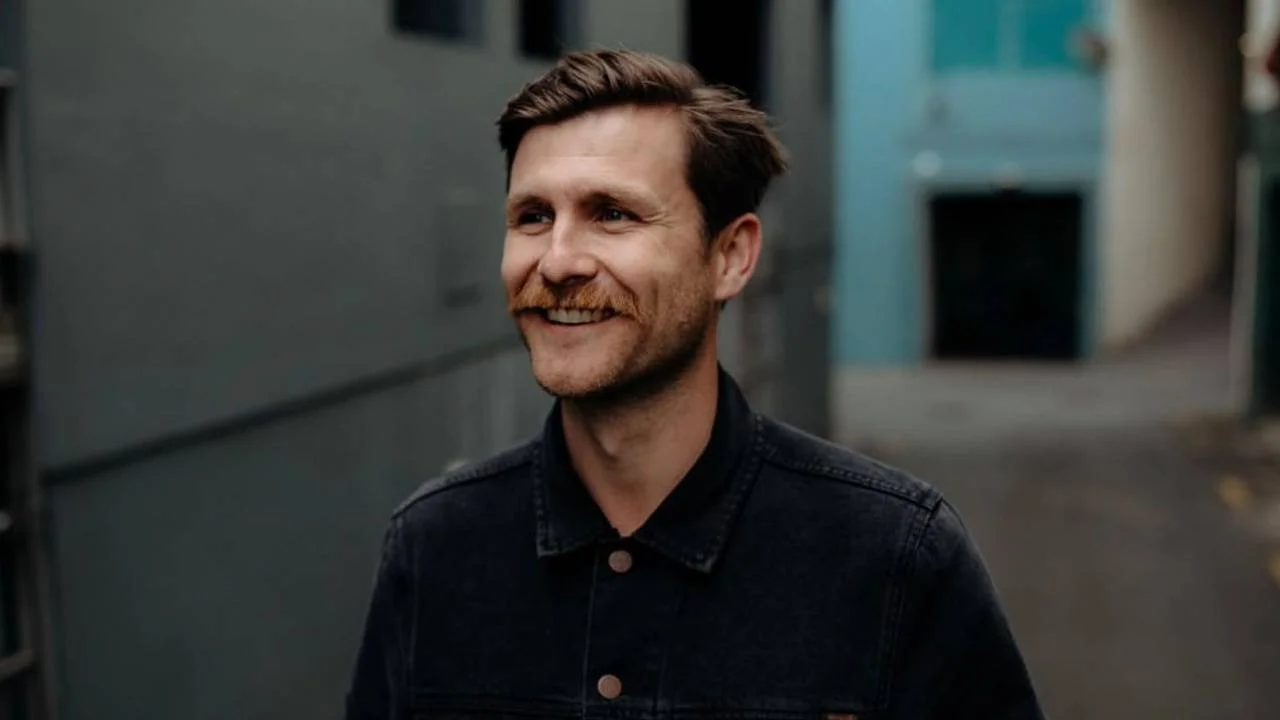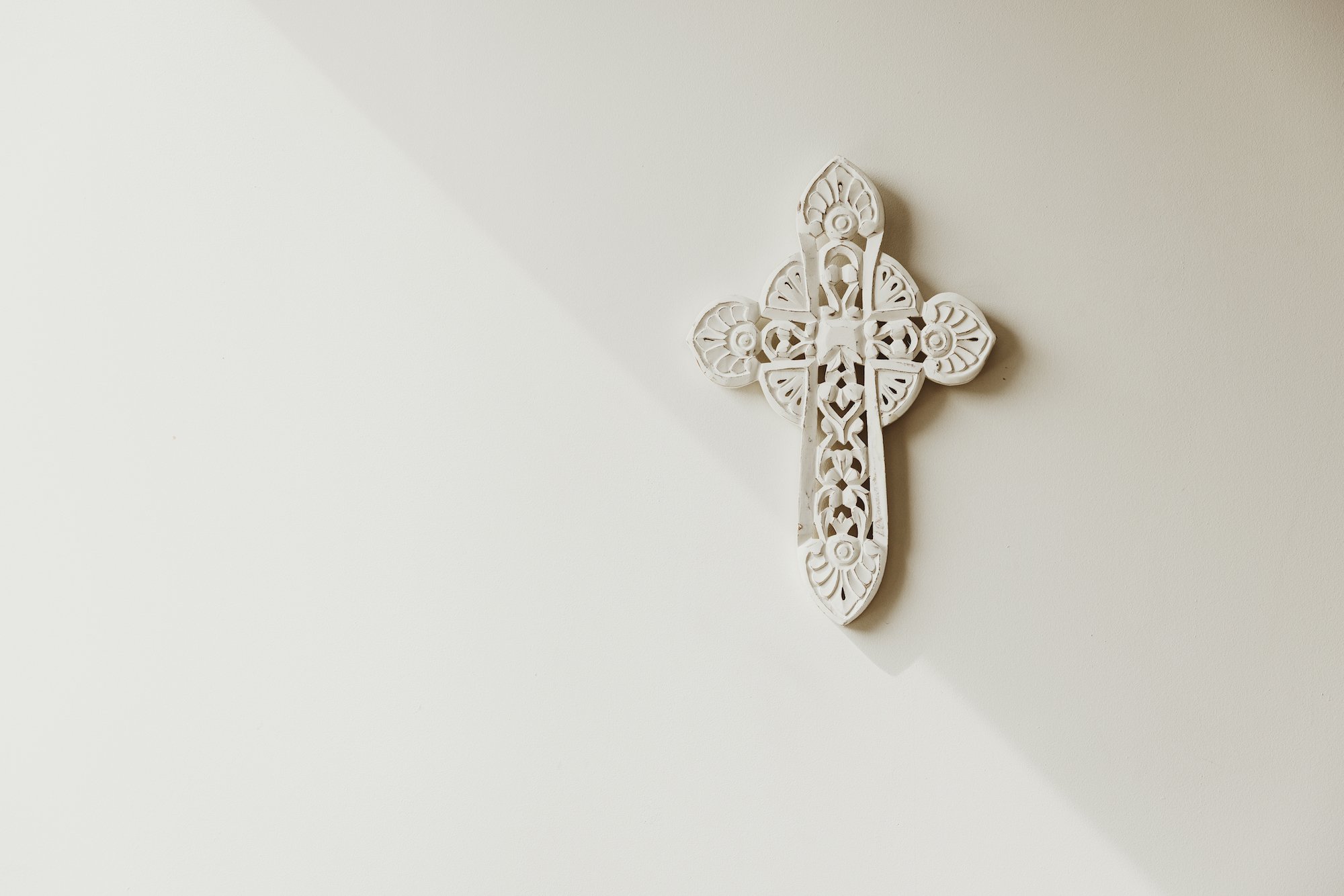Strahan Coleman | On new book ‘Beholding’, partnership with ‘Practising the Way’ and contemplative currents in Aotearoa, New Zealand
An SGM Interview with Strahan Coleman
Beholding contemplative renewal in our time.
Strahan Coleman is a spiritual director, musician and writer who creates his Commoners Communion offerings from a beach-side cabin in Tairua, before returning home to the noisy chaos of family life with his wife Katie and three growing boys. In this blogpost, Kathryn Overall has a conversation with Strahan about his new book ‘Beholding, his partnership with Practising the Way and his sense of the contemplative currents flowing throughout Aoteara, New Zealand.
Strahan, congratulations on the launch of your new book, ‘Beholding’! How would you describe ‘Beholding’ to someone who was new to your work?
‘Beholding’ is an invitation to prayer as a God-engulfed life. I think so many of us subconsciously think of prayer as conscious mental dialogue, but the gospels offer us something more radical and integrative than that - a life intermingled with the Trinity.
If beholding is our staring lovingly into God as he stares lovingly back, then beholding asks us to see God in our whole lives and to give our lives to that divine stare, saying with David, “One thing I ask from the Lord, this only do I seek: that I may dwell in the house of the Lord all the days of my life, to gaze on the beauty of the Lord.” Psalm 27:4.
When I wrote ‘Beholding’ I wanted to share my own story of stumbling into that life through chronic illness and to propose that relearning prayer, relearning existence this way, may just provide the kindling for the renewal we need in our times.
How long has ‘Beholding’ been growing within you? What is like for you to release it out into the world?
The transformation described in ‘Beholding’ began in me almost eight years ago now but really it’s only been the last three that I’ve been able to articulate and express it to others. It was during the first year of Covid that I had the idea to try and write a manifesto that could share the story and insights behind my prayer books and my public ministry. I had it in my heart to sort of say to others, ‘hey, here’s the theology and experience behind the work you receive from me, and here’s how it may just inspire radical change in our times.’
It was meant to only be a couple of essays but my friend John Mark Comer passed it on to his publisher, then another, and it ended up becoming a book! I’m grateful for that because if I’d sat down to try to write a book about it I would have probably been overwhelmed.
How did the process of writing ‘Beholding’ form you?
Writing this book was a really profound experience of God’s grace. It flowed out so easily, so restfully. I would spend entire days just sitting in my plywood cabin by the beach in the Coromandel with a lit candle just waiting for the Spirit to lift my heart toward love. Then I would write fluidly out of the inspiration that came. It wasn’t a very intellectual exercise and I hope that translates in the work. I wanted the work to feel in itself like an act of beholding, an invitation to bring the mind down into the heart where God lives. For it to feel like an act of prayer.
What hopes do you hold for ‘Beholding’? For whom do you hold these hopes?
My dream is that it will inspire the church not only into deeper divine communion, but to see the whole Christian project differently. For individuals, first and foremost, to discover a rested friendship with God. The peace, gentleness and communion that can come from a whole life lived openly before God.
But I also hope that it will inspire churches to be different. To become harbours for noise refugee’s in our world. To display the gentleness and beauty of God in our nature and our gatherings. To rethink our liturgies, our presentation, our worship styles. I can see a whole recalibration taking place that makes the church attractive to not only the world, but Christians again and not with a ‘new’ or clever idea, but an old and well worn way.
Can you tell us about your recent partnership with ‘Practising the Way’, the formation movement led by John Mark Comer in Portland, Oregon?
John Mark and I met at a formation conference he led, organised in part by my church of the time Central Vineyard, in 2018. During a leaders retreat the following week we had a few short but meaningful conversations about what God is doing in our generation and found we shared a lot of passions about bringing together contemplative and charismatic experiences in the church and a friendship was born!
I consider myself a cheerleader and friend of Practising the Way. Really, anything I’ve done with them to date is just born out of my friendship with John Mark and our shared passion for deepening lives in prayer. I hope to think that my giving my own life to teaching prayer to others and my being an outside/New Zealand voice can add something of our own national flavour to the work God is doing in the formation movement. I do know that many of the great movements, inspired by gifted and talented individuals like John Mark, often find route in small communities of likemindedness.
If I can help move the needle of the church toward a more contemplative and rested communion through my partnership with Practising the Way I would be a grateful man.
The greatest resonance I have with Practising the Way is in the area of Christian spirituality as it pertains to prayer.
I’ve been convinced for a long time that this next significant shift or movement in the church by the Holy Spirit will be in the area of prayer, though, maybe not as we’ve known it. Not necessarily in the 24-7, IHOP or even intercessory prayer forms, but in the contemplative, God-soaked, sacramental and intimate manner.
Because God longs for his beloved, and his deepest desire isn’t just to act in our lives, but to live in us. This, I know, is something John Mark and I both feel very deeply.
What need or hunger do you see that Practising the Way is seeking to meet?
It seems to me like so many, especially pastors and church leaders, are desperate to find a map for transformation. These last years have really showed up our shallowness as a wider community as far as depth, resilience and community are concerned.
I hear from others that there’s a desire to find a way to create long-term maturity and growth in the church again and this won’t happen via the same consumer style diet the church has fed herself on the past few decades.
Maybe for the first time in a long while we’re finally being honest about how little our people have grown and how thin our connections are. Covid certainly laid that bare. But I think too there’s a real hunger for the ancient church too, which is the very DNA of the formation movement and of Practising The Way’s own heart.
Through all of this you have also completed Year One of the SGM Spiritual Directors Formation Programme. What were you hopes in entering the formation programme?
My hopes in participating in the SGM Spiritual Directors Formation Programme were two-fold for me. The first is that over the years many people have asked me to be their spiritual director and I thought I should participate in community and learn with others before committing to those relationships. But secondly, I’m still seeking language and historical context for my own experiences.
I feel convinced that the pastors of tomorrow must be more spiritual director than CEO and it felt important to participate in that transformation myself. My hope was to learn to be more inquisitive with others, more God-curious, and better at sitting with them in their own journeys toward communion.
To become the pastor, in heart at least, that I’ve longed to have in my own life all these years.
What do you feel you’ve received so far?
My biggest takeaway so far has been learning to let God do the work in spiritual conversations. I have a reflex that kicks in hard to explain, explore or teach when the opportunity arises and I’ve often felt it a weakness rather than a strength. The course so far has really helped me pause and wait for the Spirit to do the work by staying curious with others. I’ve so much to learn, but that in itself has provided a real breakthrough for me in my sitting with others.
What have you wrestled with? What new insights are you integrating?
My biggest wrestle has been in that same area of learning to listen and inquire more rather than speak or guide. It’s just so different to the examples I’ve had in ministry and so counterintuitive to me. But I’ve also wrestled with my own self-doubt a lot. Trusting that it’s ok not to give everyone answers all the time, to trust that my being present to God and others is enough. I receive a lot of pressure in my work to offer easy answers, fixes or wisdom to others and learning to be ok with my not giving it to them, and not meeting their expectations was at first a struggle and then a real liberation.
What do you see happening within the contemplative stream in Aotearoa, New Zealand at this time?
To me it seems as if the contemplative stream is really knocking on the doors of our mainstream or otherwise non-contemplative church communities. There’s undoubtedly a hunger in young adults especially to approach God through a more contemplative framework but it’s so countercultural to the way our churches are set up that often communities are struggling to inhabit it.
But I think there’s also a jostle between conservative and liberal contemplative stances. There is the more benedictine and disciplined approach expressing itself in the formational movement, then the more experiential and mystic contemplative form adopted more by charismatic and post-charismatic folk.
I love that, because the contemplative steam, to me at least, doesn’t feel like a one size fits all but more of a liberation from the narrow reductionism that the reformation has over time fed into many of our denominations and church communities.
I am noticing that often people feel they need to choose between their newfound contemplative liberation and their local church and if there were one pressing issue for the church in Aotearoa to face and address in this moment, for me it would be relieving that unnecessary dichotomy by re-considering our concert model Sunday’s for a more prayerful/cathedral inspired one.
What ‘living questions’ are you holding at this time?
Many of my living questions in this season are about letting God. How do I let God take me in surprising directions? How do I let God know me, shape me and set me to work in the context of unpredictable and ongoing health issues? How do I submit myself to the beauty of the life I’m living and not the life I want? I feel more passive and acted upon than ever in my life, I just want to live that well. You’d think floating along in the river of God’s love and movement would be easy. Just lay back and enjoy the view! I’m not quite there yet, but I can see the dawning light of it.
‘Beholding’ by Strahan Coleman can be purchased from Manna Christian Stores in New Zealand, from Amazon in the United States, and Book Depository in the UK/Europe.









